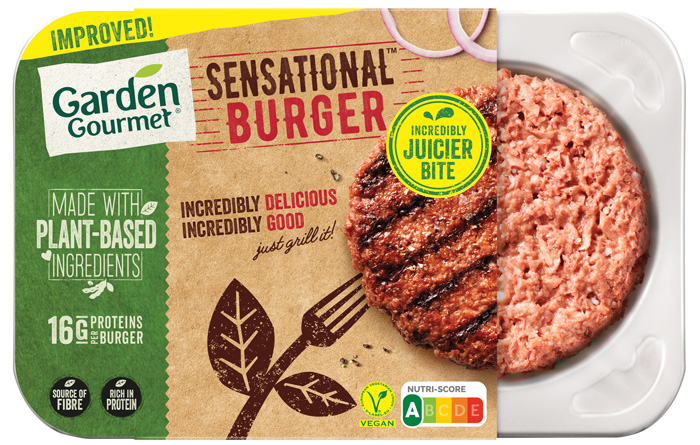Check out our media mention in Food Technology Magazine:
The word diet is often associated with weight loss, but times have changed, and today the concept of diet encompasses so much more. Flexitarian, plant-based, sustainable, low-carb … today’s diets are more holistic, focusing on the overall health of consumers as well as the health of the planet. Think of current diets as eating lifestyles.
Clean Eating
Clean eating includes simple ingredient statements, all natural, organic, and recognizable ingredients. In an International Food Information Council (IFIC) survey of 1,054 adults, most people said they are paying more attention to ingredient lists, choosing clean ingredients, and avoiding chemical-sounding ingredients.
Today’s diets are more holistic, focusing on the overall health of consumers as well as the health of the planet.
“FMCG Gurus research indicates 69% of U.S. consumers found clean label products appealing when described as natural, synthetic-free, free from artificial ingredients, and containing real ingredients,” says Janice Rueda, vice president, nutrition science business development, ADM. She adds that clean label is also associated with cues like organic, non-GMO, halal, kosher, minimally processed, no artificial sweeteners, natural colors, and more. “Shoppers perceive these products to be better for themselves and better for the environment.”
The IFIC survey also indicated that the top motivator for choosing foods and beverages with clean ingredients is seeking out health benefits. Another reason was avoidance of possible harmful effects of chemical-sounding ingredients or unfamiliar ingredients. Increasingly, consumers believe that eating clean is healthier because they are cutting back on added sugar, salt, and fat by eating more natural, wholesome foods that are nutrient dense, such as fruits, whole grains, and vegetables.
Sustainable Eating
Makers of sustainable foods seek to create products with minimal impact on the planet’s resources and climate.
Kerry surveyed 14,000 consumers across 18 countries and found that 49% are now considering sustainability when buying food and drink, and that their understanding of the issue is evolving from environmental and social responsibility to including sustainable well-being and sustainable nutrition. Kerry’s research also indicated that consumers, particularly those in more sustainability-mature markets such as the United Kingdom, Benelux, and France, are now considering sustainability as something that directly impacts them and upon which they can have an impact via food waste reduction, personal health and nutrition, and a focus on clean label claims such as “locally sourced,” “no artificial ingredients,” and “organic.”
Food and beverage groups can meet sustainability needs by emphasizing greater transparency throughout the supply chain, including responsible sourcing and ethical treatment for workers and livestock, notes Rueda. “Soy, palm oil, and vanilla are a few examples of ingredients that can be positioned as sustainably sourced,” according to Rueda. She says that ADM has a uniquely positioned vertical supply chain for vanilla through SAVAN, an alliance between ADM and Sahanala. About 6,000 farmers produce vanilla for SAVAN in Madagascar, enabling the first-ever farmer-owned supply chain. This helps ADM pioneer a large-scale digitally traceable supply while also investing back in the farmers’ communities.
“ADM is also involved in several sustainable agriculture projects that support environmental outcomes and positioning for brands. In one of these efforts, farmers grow environmentally friendly wheat that is milled into flour that producers can use to reinforce their transparency communications among consumers,” says Rueda.
In April of this year, EverGrain, which is backed by Anheuser-Busch InBev, and Bright Future Foods, a wholly owned subsidiary of Post Holdings, announced a joint collaboration to create new sustainable and climate-positive food solutions. Bright Future Foods’ first product launch was a climate-friendly snack, Airly Oat Cloud Crackers. (For more information on Airly, see the New Products department).
Sustainability also focuses on food waste. Over 30% of all food produced globally is lost or goes to waste, according to the Upcycled Food Association (UFA). Upcycled foods use ingredients that otherwise would not have gone to human consumption, are procured and produced using verifiable supply chains, and have a positive impact on the environment.
“The upcycling story has really resonated with customers and consumers. We recently performed a consumer research study that found that 42% of consumers believe that reducing food waste is a reason to purchase healthy and sustainable products,” says Loula Merkel, vice president of business development, Comet Bio. “According to UFA, 95% of consumers want to reduce food waste. Future Market Insights estimates that upcycled food could be worth $46 billion and experience 5% annual growth over the next decade.”
Comet Bio looks for ways to use its patented upcycling technology to supply consumers with not only more sustainable but also healthier ingredients. “For example, despite its exceptional prebiotic benefits, the plant fiber extract arabinoxylan has not been widely available for use due to inefficient extraction,” explains Merkel. “We saw this market opportunity and utilized our proprietary extraction technology to make the prebiotic fiber available in an isolated, purified, and fully soluble form.” The proprietary water extraction technology makes it possible to extract arabinoxylan from many crop and food leftovers. The process uses water and pressure to extract the arabinoxylan (Arrabina) and purify it.
Merkel says Comet Bio can help food companies minimize food waste and maximize profit margins by upcycling leftover materials, including wheat bran and corn bran, into “unique and sustainable ingredients, such as prebiotic fiber.” The company can also upcycle crop leftovers from harvest, including wheat straw, corn stover, and soybean hulls, allowing farmers to fully utilize their harvest and providing a new revenue stream while reducing food waste. In 2020, Comet Bio was selected by Anheuser-Busch InBev to join its 100+ Accelerator to pilot their saved grains using Comet Bio’s patented upcycling process. After a successful pilot, Comet Bio is now partnering with EverGrain to extract soluble fiber from saved grains.
Plant-Based Eating
Interest in plant-based eating is strong, encompassing eating lifestyles like flexitarian, vegetarian, and vegan. “We’re seeing increasing interest beyond plant burgers and nondairy milk as more consumers seek out variety and convenience,” says Rueda. “For example, in the United States, 41% of plant protein consumers are interested in trying alternative shredded and pulled meats, and 39% are interested in trying alternative crumbles and grounds. We also expect growth for plant-based ice cream, yogurt, cheese, and butter spreads.”

Plant-based meat alternatives can be a part of low-carb and flexitarian eating lifestyles. Photo courtesy of Nestlé
Ethical and environmental concerns are important reasons for plant-based eating, but more consumers are turning to plant-based eating for health reasons as well. “Plant-based products can offer the potential for wholesome nutrition, such as protein, fiber, vitamins, and minerals,” says Rueda.
An interesting study by Kim et al. (2021) looked at the association between dietary patterns and COVID-19 in a study of healthcare workers from six countries (France, Germany, Italy, Spain, the United Kingdom, and the United States) with substantial exposure to COVID-19 patients. They were asked to complete a web-based survey, providing information on demographic characteristics, dietary information, and COVID-19 outcomes. In the six countries, participants who reported following “plant-based diets” and “plant-based diets or pescatarian diets” had 73% and 59% lower odds of moderate-to-severe COVID-19, respectively, compared with participants who did not follow these diets.
An interesting study by Kim et al. looked at the association between dietary patterns and COVID-19 in a study of healthcare workers from six countries.
Plant-based proteins, particularly from pea, wheat, soy, and rice, are more mainstream and can be found in a variety of foods and beverages thanks to ingredient suppliers’ innovations in alternative protein functionality, taste, color, and nutrition. Other plant-based proteins on the horizon are hemp and canola.
In addition to plant sources for proteins, technology is advancing to create alternative proteins. Israeli startup Imagindairy uses precision fermentation to increase the expression of milk protein in microflora, re-creating nature-identical, animal-free versions of whey and casein proteins that can be used to produce dairy analogues. Imagindairy’s animal-free dairy products boast the same complement of nutrients, from protein content to mineral composition, including calcium. The startup has raised $1.5 million in seed funding, led by The Kitchen FoodTech hub, and will soon enter its A-round funding series.
Low to Very Low Carb Diets
Several diets focus on reducing carbohydrate intake, primarily through eliminating refined grains or all grains and legumes and some fruits and vegetables. While there is debate about the overall benefits of eliminating certain food groups from the diet, consumers are still practicing diets like paleo and keto.
Paleo, which focuses on eating food similar to what might have been eaten during the Paleolithic era (approximately 2.5 million to 10,000 years ago), isn’t necessarily low carb, but it does call for the avoidance of grains, legumes, and dairy products. The rationale for the diet is that the human body is more attuned to eating foods from the days prior to farming practices, so it avoids refined sugar and highly processed foods in addition to dairy, legumes, and grains. Paleo eaters can consume lean meats, fish, fruits, vegetables, nuts, and seeds.
The ketogenic diet was initially designed to reduce seizure onset among children with drug-resistant epilepsy. Today, it is a popular eating lifestyle focused on high fat, low carbohydrate, and moderate protein intake that sends the body into ketosis. When in ketosis, the body uses fat, rather than carbohydrates, as fuel. Keto has gained a foothold because not only does it promote weight loss, it has also been reported to minimize cravings, improve levels of HDL cholesterol, lower blood pressure, and help those who follow it feel more energetic and focused.
Medium-chain triglycerides (MCTs) are often supplemented in the keto diet because they are converted more quickly into ketones, which increases energy expenditure and leads to fewer calories stored as fat. It has been reported to also help people stay in the fat-burning ketosis state. In addition, MCT oil has been shown to promote satiety.
Nuts play an important role in paleo, keto, and basically any plant-based eating lifestyle. They are a source of vitamins, minerals, protein, and fiber. And they can be used as more than just whole food snacks. For example, GoGo squeeZ introduced a plant-based pudding in a pouch, GoGo squeeZ AlmondBlend Pudding. Made with almonds, the pudding is nondairy and features 5 grams of protein (from pea protein). Almonds offer a great source of plant-based protein and nutrients in alternative milks, butters, snacks, and baked goods.
Walnuts are another nut popular in foods and beverages that fit keto, paleo, and other plant-based eating lifestyles. They provide an excellent source of plant-based omega-3 alpha-linolenic acid, with 2.5 g per ounce. They also offer protein, fiber, and magnesium. In a 2020 white paper, the California Walnut Commission shared examples of walnuts being used in plant-based meat alternatives such as chorizo walnut crumbles and veggie burgers. According to the white paper, the formulations are simple and require only a blend of walnuts with a legume (chickpeas or black beans are recommended) to create a clean label alternative that satisfies both flavor and texture demands.
As eating lifestyles evolve, consumers need to keep overall nutrition in mind. If certain food groups are avoided, nutrients like dietary fiber, essential vitamins or minerals, and fatty acids may need to be supplemented. Ingredient suppliers and food and beverage manufacturers can help by continuing to focus on nutritional and sustainable offerings.






